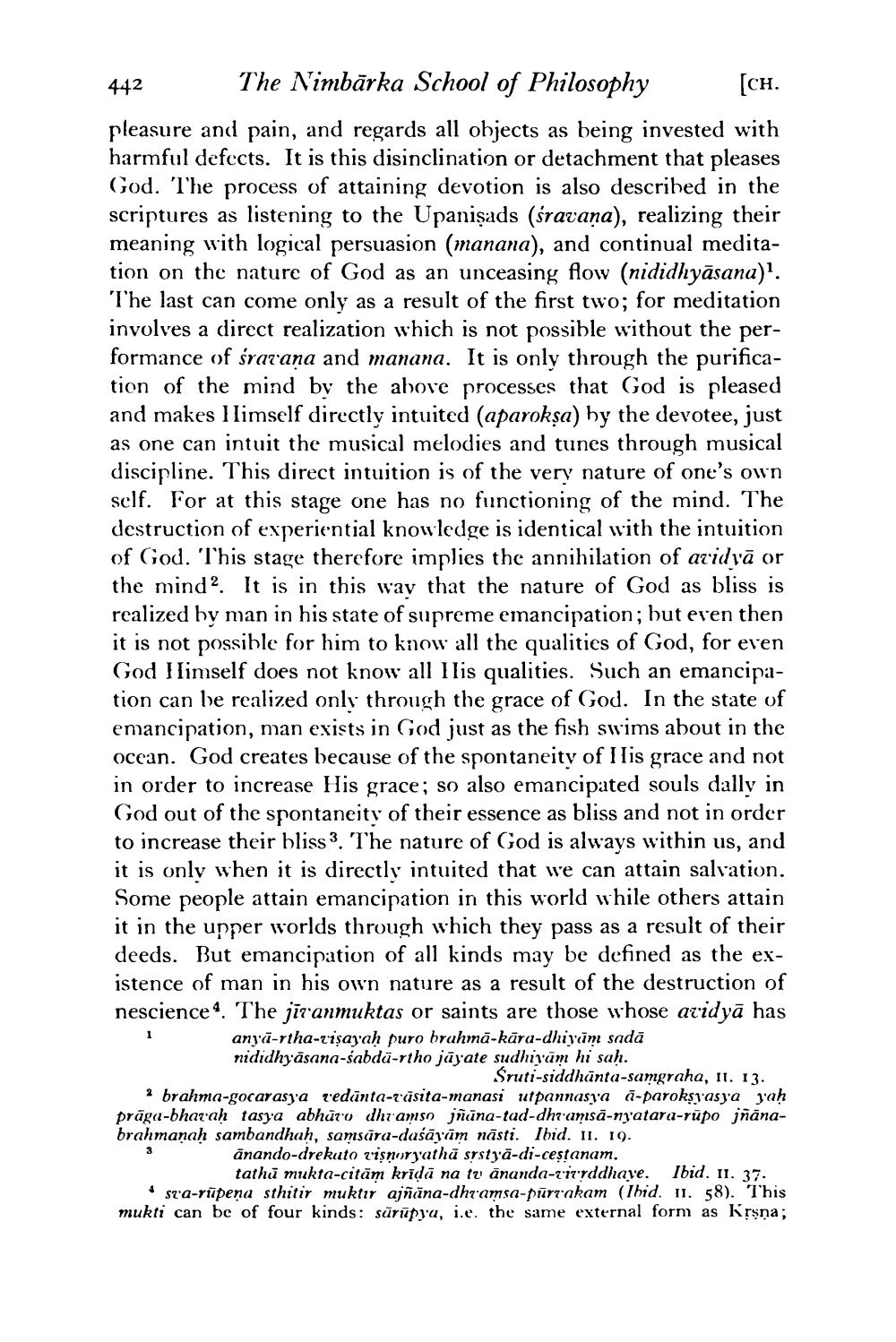________________
442 The Nimbārka School of Philosophy [cH. pleasure and pain, and regards all objects as being invested with harmful defects. It is this disinclination or detachment that pleases God. The process of attaining devotion is also described in the scriptures as listening to the Upanişads (śravana), realizing their meaning with logical persuasion (manana), and continual meditation on the nature of God as an unceasing flow (nididhyāsana)". The last can come only as a result of the first two; for meditation involves a direct realization which is not possible without the performance of śrarana and manana. It is only through the purification of the mind by the above processes that God is pleased and makes Ilimself directly intuited (aparokșa) hy the devotee, just as one can intuit the musical melodies and tunes through musical discipline. This direct intuition is of the very nature of one's own self. For at this stage one has no functioning of the mind. The destruction of experiential knowledge is identical with the intuition of God. This stage therefore implies the annihilation of aridyā or the mind? It is in this way that the nature of God as bliss is realized by man in his state of supreme emancipation; but even then it is not possible for him to know all the qualities of God, for even God Ilimself does not know all Ilis qualities. Such an emancipation can be realized only through the grace of God. In the state of emancipation, man exists in God just as the fish swims about in the ocean. God creates because of the spontaneity of Ilis grace and not in order to increase His grace; so also emancipated souls dally in God out of the spontaneity of their essence as bliss and not in order to increase their bliss 3. The nature of God is always within us, and it is only when it is directly intuited that we can attain salvation. Some people attain emancipation in this world while others attain it in the upper worlds through which they pass as a result of their deeds. But emancipation of all kinds may be defined as the existence of man in his own nature as a result of the destruction of nescience 4. The jiranmuktas or saints are those whose avidyā has
any'ā-rtha-qışayah puro bruhma-kāra-dhiycīm sadā nididhyāsana-sabdā-rtho jāyate sudhiyam hi sah.
Sruti-siddhanta-samgraha, 11. 13. 2 brahma-gocarasy'a redānta-rūsita-manasi utpannasy'a ā-paroksyasya yah prāgai-bhatah tasya abhūto dhi'amiso jñuna-tad-dhramsā-ng'atara-rūpo jñānabrahmanah sambandhah, samsara-daśāvīm nāsti. Ibid. 11. 19.
ānando-drekuto risnorjathā srsty'ā-di-ceștanam.
tathu mukta-citām kridū na tv ananda-titrddhave. Ibid. II. 37. st'a-rūpena sthitir muktır ajñāna-dhramsa-purtakam (Ibid. 11. 58). This mukti can be of four kinds: sürūpju, i.e. the same external form as Krsna;




